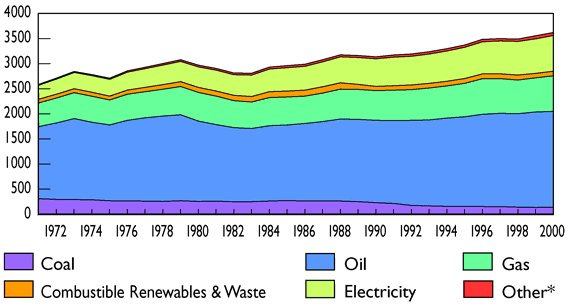
Oil price hikes every week or so are killing me. The direct results of the war in Iraq and the tensions it has released in the Middle East hit you and me right where it hurts. In our pockets. So what are the possible reasons for oil price hikes here and all over the world? Nicolas Sarkis, director of the Arab Petroleum Research Centre and editor of ’Le pétrole et le gaz arabes,’ explains in this article.
Its probably already a well-known fact Big Oil interests are very much in play on the Iraq war, among other things. At present it outrages us, the very audacity and greed of Big Men in Power. The long-term effects? We shouldn't kid ourselves. Its bad in the Philippines, and whats happening outside of its borders will only make things worse.
Here are some very curious things I learned.
"Which energy source will we use in future? Despite forecasts of a change to nuclear power, oil will continue to play a key role. According to the International Energy Agency demand will increase by 1.9% a year, from 80m barrels a day in 2003 to 120m in 2020. By then Arab countries will produce 41% of global supplies rather than the present 25%."
"We should not ignore another grim reality: by 2025 the steep increase in world demand and decline in reserves and output in industrialised countries will increase their dependence on imported oil. US imports will rise from 55.7% to 71%, western European imports from 50.1% to 68.6%, and Chinese from 31.5% to 73.2%. "
"This growing dependence, in a sector as vital as energy, explains the oil wars that the big powers and their companies are waging to gain control of reserves in the Middle East, Africa (3), Central Asia and Iraq (4). There has been serious reason to question the interpretation of the current rises - are they the first sign of a crisis caused by the imbalance between steadily rising demand and inadequate production capacity?"
"The expansion of production capacity over the next few years depends just as much on political stability, particularly in the Middle East, as on the volume of reserves available."

No comments:
Post a Comment